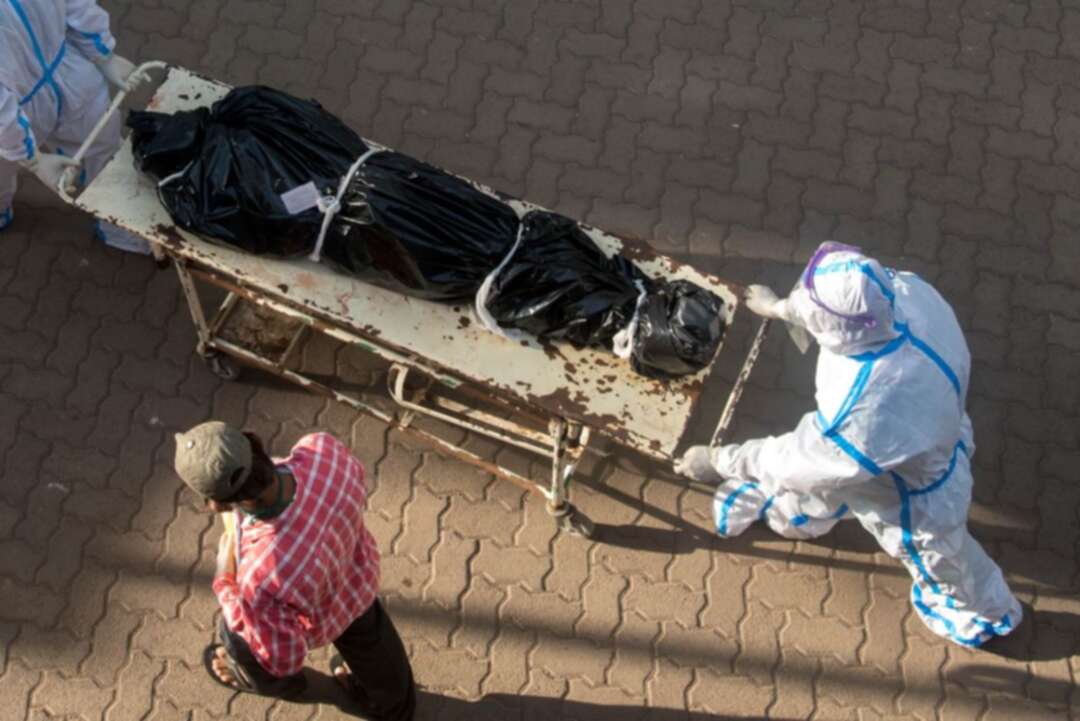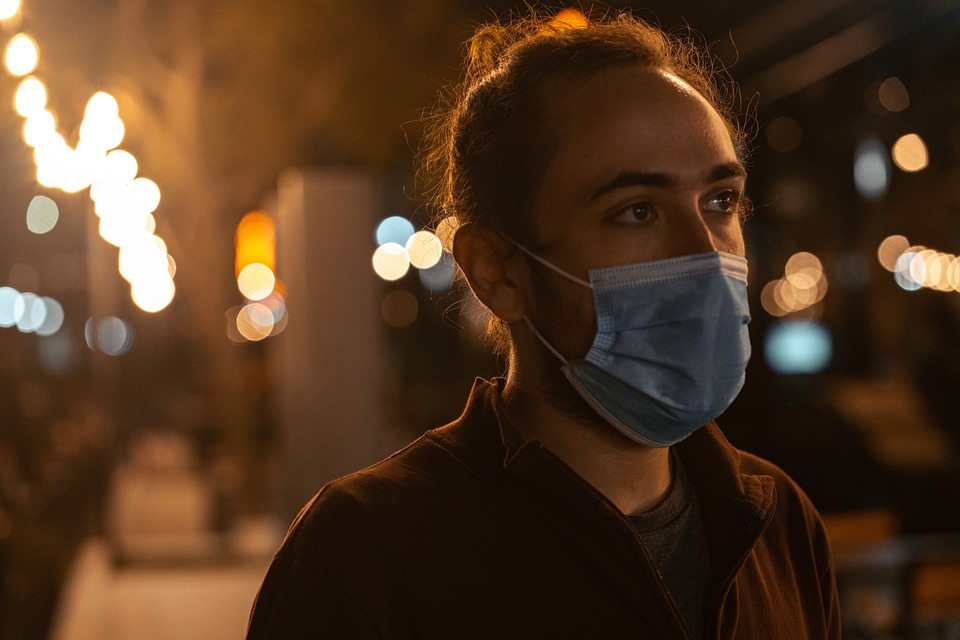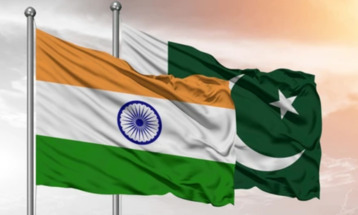-
COVID-19 records more than five million deaths worldwide

The BBC reported according to Johns Hopkins University, more than five million people are known to have died of Covid-19 worldwide, 19 months since the pandemic began.
It aid that vaccines have slowed the death rate, but some health experts say the true toll could be far higher.
It mentioned that the milestone comes amid warnings from health officials that cases and deaths in some places are rising for the first time in months.
According to the BBC, nearly 250 million cases of the virus have been recorded worldwide.
The World Health Organization (WHO) estimates the pandemic's real global death toll could be two to three times higher than official records.

The BBC said that in the US, more than 745,800 people have died, making it the country with the highest number of recorded deaths.
Read more: COVID in India: Over 100 New Delhi kids orphaned and 2,500 lost one parent
It is followed by Brazil, with 607,824 recorded deaths, and India, with 458,437. But health experts believe these numbers are under reported, partly because of deaths at home and those in rural communities.
It has taken the world longer to reach the latest one million deaths than the previous two.
It took over 110 days to go from four million deaths to five million. That is compared to just under 90 days to rise from three million to four million.
While vaccines have helped reduce the fatality rate, the WHO warned last week that the pandemic was "far from over".
Its director general Tedros Adhanom Ghebreyesus pointed to a rise in cases in Europe, where countries with low vaccination rates are seeing soaring infections and deaths.
Read more: Are Palestinian NGOs really ‘terrorists in suits’?
Last week, Russia recorded its highest number of daily cases and deaths since the start of the pandemic. Russia accounts for 10% of the last million deaths recorded globally.
Romania has one of the world's highest Covid mortality rates, and hospitals are struggling to cope. It has the second-lowest vaccine rate in the European Union.
More than seven billion vaccine doses have been administered worldwide, but there is a gap between rich and poor nations.
Only 3.6% of people in low income countries have been vaccinated, according to Oxford University's Our World in Data.
Source: BBC
You May Also Like
Popular Posts
Caricature
BENEFIT Sponsors BuildHer...
- April 23, 2025
BENEFIT, the Kingdom’s innovator and leading company in Fintech and electronic financial transactions service, has sponsored the BuildHer CityHack 2025 Hackathon, a two-day event spearheaded by the College of Engineering and Technology at the Royal University for Women (RUW).
Aimed at secondary school students, the event brought together a distinguished group of academic professionals and technology experts to mentor and inspire young participants.
More than 100 high school students from across the Kingdom of Bahrain took part in the hackathon, which featured an intensive programme of training workshops and hands-on sessions. These activities were tailored to enhance participants’ critical thinking, collaborative problem-solving, and team-building capabilities, while also encouraging the development of practical and sustainable solutions to contemporary challenges using modern technological tools.
BENEFIT’s Chief Executive Mr. Abdulwahed AlJanahi, commented: “Our support for this educational hackathon reflects our long-term strategic vision to nurture the talents of emerging national youth and empower the next generation of accomplished female leaders in technology. By fostering creativity and innovation, we aim to contribute meaningfully to Bahrain’s comprehensive development goals and align with the aspirations outlined in the Kingdom’s Vision 2030—an ambition in which BENEFIT plays a central role.”
Professor Riyadh Yousif Hamzah, President of the Royal University for Women, commented: “This initiative reflects our commitment to advancing women in STEM fields. We're cultivating a generation of creative, solution-driven female leaders who will drive national development. Our partnership with BENEFIT exemplifies the powerful synergy between academia and private sector in supporting educational innovation.”
Hanan Abdulla Hasan, Senior Manager, PR & Communication at BENEFIT, said: “We are honoured to collaborate with RUW in supporting this remarkable technology-focused event. It highlights our commitment to social responsibility, and our ongoing efforts to enhance the digital and innovation capabilities of young Bahraini women and foster their ability to harness technological tools in the service of a smarter, more sustainable future.”
For his part, Dr. Humam ElAgha, Acting Dean of the College of Engineering and Technology at the University, said: “BuildHer CityHack 2025 embodies our hands-on approach to education. By tackling real-world problems through creative thinking and sustainable solutions, we're preparing women to thrive in the knowledge economy – a cornerstone of the University's vision.”
opinion
Report
ads
Newsletter
Subscribe to our mailing list to get the new updates!






















